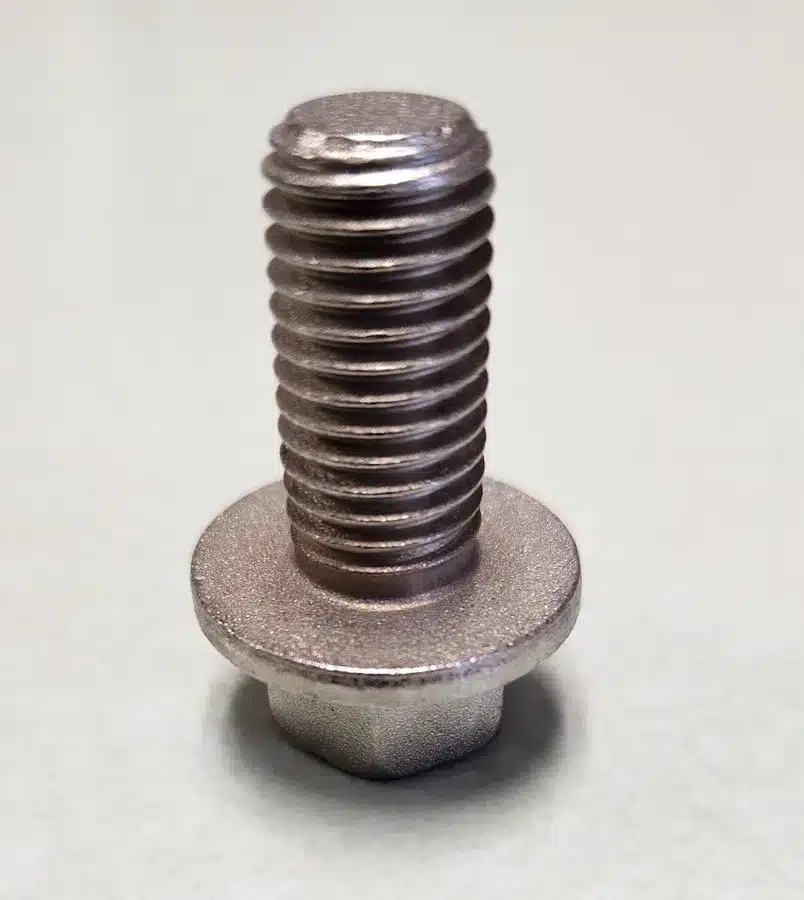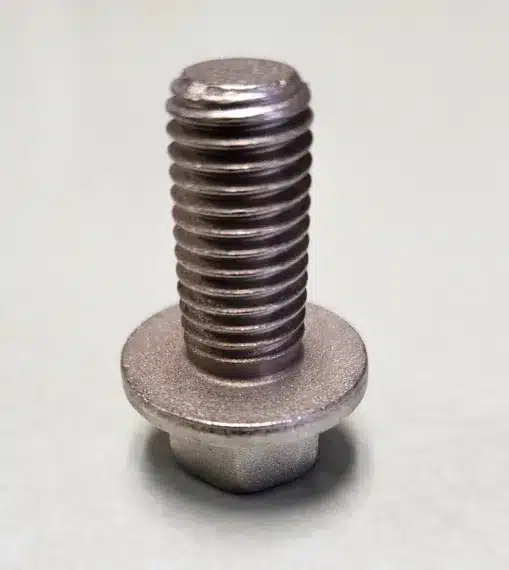The introduction of zinc-nickel plating dates back to the 1980s, but the material hasn’t gained much attention until recently. For a while, there were misconceptions swirling around about its practicality and benefits, which have since been dispelled.
Today, engineers and manufacturers around the world are becoming more interested in zinc-nickel — in the fastener world and beyond. Some new government regulations are even calling for it in replacement of other surface coatings and plating materials.
If you’re wondering what all the buzz is about, here’s what you need to know.
What Is Zinc-Nickel Plating?
Zinc-nickel (Zn-Ni) is short for zinc-nickel electroplate. It usually consists of an 8-14 μm layer of 12-16% nickel alloy that’s topped with a .06-.15 μm trivalent passivate layer and a .5-4 μm layer of top coat.
Features, Capabilities, and Benefits
Zinc-nickel plating isn’t new by any means. But it’s features and benefits are receiving more recognition now than ever. Some include:
- Great corrosion resistance — Up to 10x more than conventional zinc, and up to 1000 Neutral Salt Spray hours!
- Great thermal stress and wear resistance, especially for applications with moving parts.
- Eco-friendliness — This is a major driver for why the U.S. military and other government entities are pushing this plating. It competes with other environmentally friendly plating options like zinc electroplate with trivalent chromium, zinc flake (Magni), and zinc phosphate and oil.
- Reasonable cost, falling somewhere in the moderate to moderately-high price category — which is worth it if you need its good performance and eco-friendly qualities.
One downside of zinc-nickel plating is that it puts fasteners at risk for hydrogen embrittlement. Hydrogen embrittlement is a legitimate concern, but the risk can be eliminated by baking the parts after plating.
Zinc-Nickel vs. Cadmium Plating
Zinc-nickel has been positioned as a better alternative to cadmium — partially due to its great performance, but mostly due to its eco-friendly nature. Cadmium and its compounds have been found to have high toxicity levels, so zinc-nickel offers a less harmful, high-quality option. Government regulations across various industries are pushing for it.
But it’s not just putting cadmium out of business. Zinc-nickel has also been recognized as more eco-friendly alternative to zinc electroplate with hexavalent chromium. Hexavalent chromium is still quite common and is considered bad for the environment.
When to Use Zinc-Nickel Plating for Fasteners
Fastener coatings and platings can be tricky. You only want to use them if you really need them; otherwise, they’re not worth the extra cost.
So what are some instances where zinc-nickel may be a necessary addition? Some of these applications are starting points:
- Automotive and machine engines
- Aerospace devices and components
- Heavy-duty trucks, military vehicles, construction and agricultural equipment, etc.
- Applications with rapidly or consistently moving parts
- Applications at risk of higher operating temperatures
Fastener Specs That Call for Zinc-Nickel Plating
Another obvious instance to use zinc-nickel plating is when your spec calls for it. There are a bunch of them out there, but the most commonly used ones are:
MIL-PRF-32647 Type K16
- No color specified; yellow discouraged
- 1000 NSS hours
GMW16730
- Black
- 1000 NSS hours
When NOT to Use Zinc-Nickel Plating for Fasteners
As stated above, you shouldn’t use zinc-nickel plating for fasteners if you don’t need it. It’s not worth the cost. Not that it’s ludicrously expensive — it’s just a waste of money for something you don’t actually need.
The other situation where zinc-nickel plating probably isn’t your best option is when hydrogen embrittlement is a serious worry. Properly baked parts won’t become brittle, but if you’ll lose sleep worrying about the chances, it’s best to go with another plating solution for peace of mind. Zinc flake might be a good alternative.
Get the Custom Fasteners You Need at Wilson-Garner
Looking for a specialty fastener solution? Our expertise lies in manufacturing per-spec fasteners to the highest quality, and we’d be excited to help with your next project. Request a quote online or contact us to learn more.

